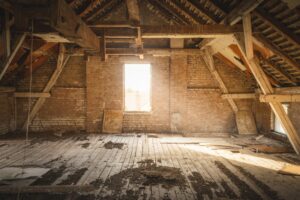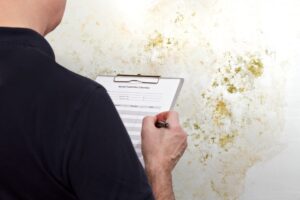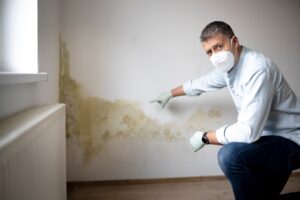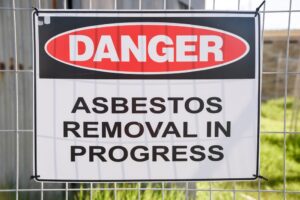
A Homebuyer’s Guide to Mold Inspection and Remediation
You’ve finally found it—the house that ticks all your boxes. But beneath those perfect walls, could an unseen intruder be lurking? Mold isn’t just that unsightly patch on the wall; it’s a sneaky fungus that thrives in damp, humid environments. From discoloration to that musty smell, it’s a master of disguise, often hiding in plain sight. That’s where a mold inspection comes in—a critical step in the home-buying journey that could save you from unexpected headaches down the road.
In this blog, the team at All Clear Environmental will guide you through mould inspection and remediation so you can make great choices in the real estate market.

Should I Get a Mold Inspection When Buying a New Home?
Imagine this: you’ve found the house you adore. It’s got the right vibe, the perfect layout, and that stunning garden you’ve been dreaming of. But here’s the catch – what if there’s mould sneakily growing behind those beautifully painted walls? That’s where a mold inspection swoops in to save the day.
A thorough mold inspection is like your home’s personal health check-up. Professionals armed with specialized equipment and a keen eye know precisely where to look. They’ll hunt down those trouble spots and make sure you have nothing to worry about. It’s better to unveil any potential mould issues before you’re knee-deep in moving boxes.
How Do Home Inspectors Detect Mold?
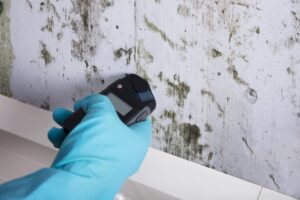
Visual Examination: Think of home inspectors as mould detectives with keen eyes. They start by sleuthing in the usual suspect spots—areas prone to moisture like basements, bathrooms, kitchens, and any nooks where water might lurk. These pros are on the lookout for discoloration, unusual stains, or musty odours that could hint at hidden mould.
Moisture Detection Tools: Inspectors aren’t just relying on their keen eyes; they bring along some serious tech. Moisture meters are like mould’s arch-nemesis—they detect even the slightest hint of moisture behind walls or under floors. And then there are infrared cameras that uncover hidden water sources, making it harder for mould to play hide-and-seek.
Sampling Techniques: Sometimes, suspicions need validation. That’s when inspectors might take air or surface samples to get a closer look at what’s floating around. These samples get whisked off to a lab for detailed analysis—kind of like sending evidence to a forensic lab. This analysis identifies the type and extent of mould present, aiding in decision-making.
What Should I Do When Selling a House with Mold?
Alright, so you’re on the selling side, and mold decides to crash your perfect home-selling parade. Don’t fret just yet! Mould issues don’t have to spell disaster for your home sale. The key here is tackling the problem head-on.
Get the professionals involved for proper mold remediation. By addressing the issue promptly and thoroughly, you can provide potential buyers with documentation showcasing the remediation process. This documentation is your superhero cape, calming their worries and showing that you’ve handled the situation like a pro.
Remember, transparency is crucial. Being upfront about past mould issues, the steps taken for remediation, and any preventive measures put in place can turn a potential deal-breaker into a minor bump in the road.
Should I Buy a House with Mold?
Now, here’s the dilemma! You’ve found THE house, but it comes with a side of mold. Here’s the deal: not all mold situations are deal-breakers. If the mould problem is minor and can be properly remediated by experts, it might just be a hiccup in the home-buying journey.
However, let’s be real here. Extensive and recurring mould issues could become your worst nightmare in the future. It’s like that ticking time bomb waiting to explode into a major headache down the road.
Before you make any decisions, do the math. Calculate the cost of remediation against the purchase price and the potential risks. Sometimes, a house that’s had a mould issue but has been professionally treated might offer a fantastic opportunity for negotiation. It’s all about balancing risks, costs, and potential benefits.
Remember, mould doesn’t have to be a deal-breaker, but it definitely requires serious consideration and a game plan before making that final call.
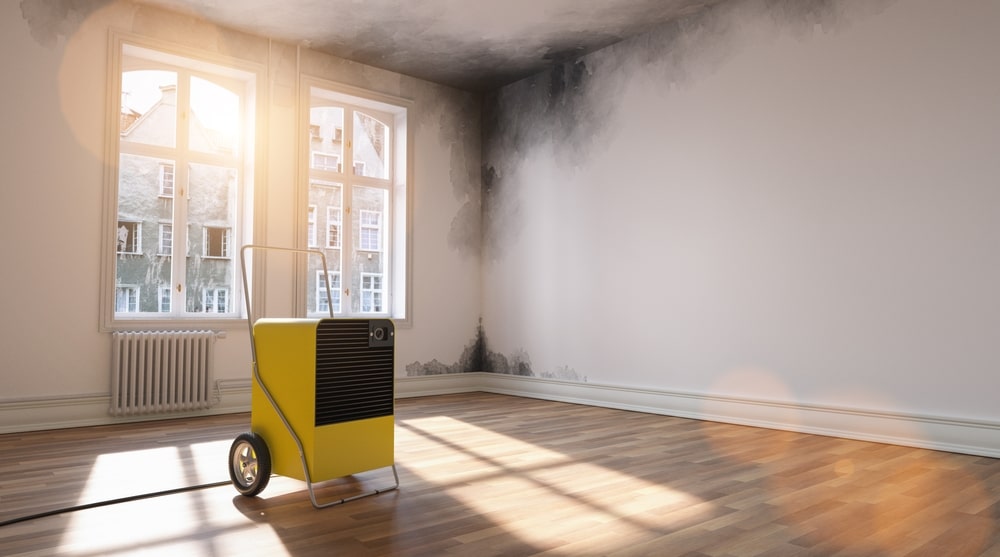
Clearing the Air: Mold Remediation Techniques
Professional Remediation: Calling in the Experts
When mould takes residence in your potential dream home, calling in the pros is often the smartest move. These experts are armed with specialized gear and knowledge. They’ll assess the extent of the mould, contain the affected areas, and safely remove the mold without sending its spores on a mission to colonize elsewhere in your home.
Professional remediation doesn’t just stop at removing the visible mold; it involves getting to the root of the problem. These experts will investigate the cause of the mold growth, whether it’s a leaky pipe, poor ventilation, or a moisture issue. By addressing the underlying cause, they help prevent future mould invasions.
Repairing Water Intrusion: Plugging the Leaks
Think of water as mold’s best friend—it loves to hang out in damp places. Fixing leaks or any water intrusion issues is a crucial step in keeping mould at bay. Whether it’s a dripping pipe, a faulty roof, or poor drainage causing water to sneak into your home, these issues need fixing pronto.
By addressing water problems, you’re essentially cutting off the lifeline for mould growth. Once you’ve nipped the moisture source in the bud, you’re putting up a formidable defence against mold making a comeback.
Proper Ventilation: Letting the Air Flow
Mould thrives in stagnant, humid areas where the air doesn’t circulate well. Ensuring good airflow throughout your home is a game-changer in mold prevention. This means proper ventilation in areas like bathrooms, kitchens, basements, and attics—anywhere prone to trapping moisture.
Installing exhaust fans, using dehumidifiers, or even just opening windows regularly can work wonders in keeping the air moving. By reducing humidity and increasing ventilation, you’re creating an environment that’s far less inviting for mold spores to settle and grow.
All Clear Environmental – Ontario’s Leaders in Mould Removal
Ready to make your dream home All Clear? Please contact us at All Clear Environmental for expert mould remediation in Ontario! Whether you’re buying a new home or suspect a mould issue in your current space, our team at All Clear Environmental is here to help. Say goodbye to mold worries and hello to a healthier home! Contact us today for a comprehensive mould inspection and expert remediation services. Let’s ensure your dream home stays free from mould’s sneaky grasp. Your peace of mind is just a call away with All Clear Environmental!



